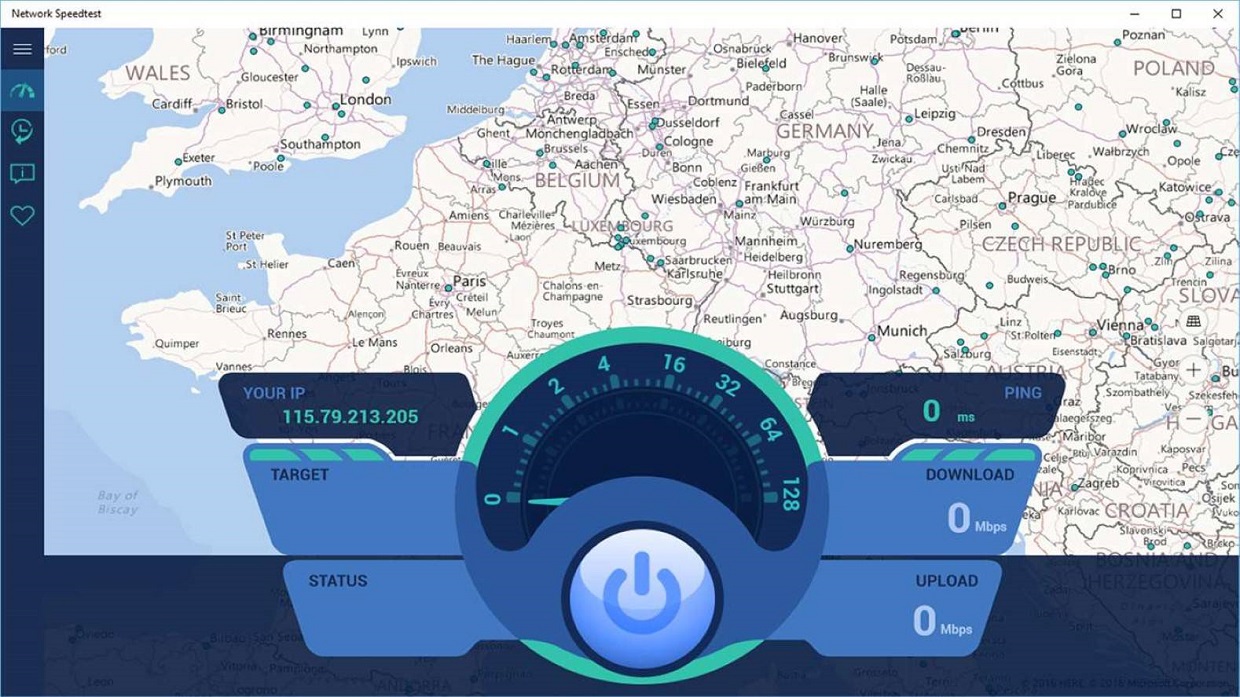What is download speed?
Download speed means how fast internet users can retrieve data from a server or internet site to their devices (PC, mobile, tablet, etc.) online. Download speed is usually higher than upload speed, as most common internet activities are based on downloading (loading pages, downloading files, watching videos, etc.).
Internet speed tests, like this one or the test found at SpeedTest.net, measure the latter, or the speed reaching the device running the test. These test results are often lower than your plan speed due to various factors outside your Internet. Download Speed Test – Measure The Downloading Speed. Check out Download Speed Test.
What is upload speed?
Upload speed means how quickly internet users can send data from their devices (PC, mobile, tablet, etc.) to the internet network. Upload speed is usually slower than download speed, as upload speed is usually less important for the common user. Most activities on the internet don’t require fast upload speeds. On the other hand, upload speed might be very important for users who upload a lot of data to services such as YouTube, Google Drive, Dropbox, etc. or for those who extensively use social networks by uploading a lot of media (photos, videos, etc.).
What are Ping and Latency?
Ping or Ping test refers to a reaction time of your device to respond to the request from another device. This information is specifically important for online game players (i.e., League of Legends, World of Warcraft, Battlefield), who need a low ping time (reaction time). High ping time means delay, which is a big disadvantage compared to the players with low ping time.
Latency or Latency test refers to a time it takes to send a ping (packet of data) from your device to the server and then receive it back to the device. Latency represents the round trip delay and has an important impact on the performance of the network. Latency is usually measured in milliseconds (ms).
What is a good internet speed?
It’s hard to say what is a good internet speed in general. In most cases, it depends on user activity. Internet speeds above 25Mbps should be enough for the most common online tasks, such as watching movies, playing basic games, or downloading small files. However, for advanced internet activities, such as downloading big files or playing games with higher demands for graphics, we recommend internet speeds above 60Mbps.
What internet speed do I need?
Be aware that most of the internet connections are slower than the speed which is advertised. A 100Mbps connection often means that 100Mbps is your maximum speed. Your speed at any moment could vary and will depend on a lot of factors. Always order an internet speed faster than you expect that you will need.
We have prepared some recommendations for casual activities that are based on the official minimum / recommended speed from official sources and based on our experiences. We increased speeds a little bit against official speeds, just to be sure there is enough room for your activities.
| Activity | Our recommendation | Note |
|---|---|---|
| Watching Full HD movies on Netflix | 10Mbps | Official recommendations from Netlix here |
| Watching Ultra HD movies on Netflix | 30Mbps | Official recommendations from Netlix here |
| Online gaming | 10Mbps | |
| Skype voice-only call | 1Mbps | Official requirements from Skype here |
| Skype video call | 10Mbps | Official requirements from Skype here |
| 10Mbps | ||
| Surfing the web | 10Mbps |
If you are still asking yourself how much internet speed you need, then we recommend you to pick a 100Mbps internet connection (if it's available in your area). With this speed of internet connection, you will be safe for a long period of time.
What is the average internet speed?
In the year 2019:
- The US average internet speed as 32.89Mbps.
- The global average broadband internet speed is 11.03Mbps.
- 141 countries have average speeds below 10Mbps.
- Taiwan has the fastest internet speed in the world: 85.02Mbps.
- Yemen has the slowest average internet speed in the world: 0.38Mbps.
Source: https://www.atlasandboots.com/remote-jobs/countries-with-the-fastest-internet-in-the-world/

How to increase internet speed
We have a few tips on how to optimize an internet connection to get the most out of it:
- Reduce the distance between your computer and your router.
- Minimize the number of items on the network.
- If possible, use Ethernet connection instead of Wi-Fi.
- Update your connection hardware.
- Use a Wi-Fi range extender.
Glossary
Wi-Fi speed test


A lot of people are looking for a Wi-Fi speed test, but often what they really need is just an ordinary internet speed test. However, a Wi-Fi connection can significantly slow down your internet connection when your Wi-Fi router is very old or you have bad reception for its signal. The same applies to the terms:
- modem speed test
- network speed test
- connection speed test
- broadband speed test
- … and many others for which you can use our speed test above
Bandwidth
In the context of internet speed, bandwidth refers to the volume of information per unit of time that an internet connection can handle. An internet connection with a bigger bandwidth can transfer a portion of data much faster than an internet connection with lower bandwidth.
DSL
DSL (Digital Subscriber Line) uses an internet connection on an existing telephone network. DSL is highly popular in cities, but you find it less in rural areas. It’s one of the most common options for the internet connection today. DSL internet is usually cheaper than other types of internet connection, such as fiber optic or cable connections, but it’s also slower.
FAST.com gives you an estimate of your current internet speed. You will generally be able to get this speed from leading internet services, which use globally distributed servers.
Check Internet Download Speed Test Free Software Free
